Banktuptcy
At Auer Legal Services, we understand that facing overwhelming debt is stressful, confusing, and deeply personal. That’s why we approach every case with one core principle in mind: bankruptcy is just one tool in the toolbox—not the only one.
We offer legal representation for both Chapter 7 and Chapter 13 bankruptcy filings. These legal options can provide powerful relief by stopping creditor harassment, halting foreclosures, and eliminating or restructuring debt. In many cases, filing for bankruptcy may be the most effective way to regain financial control and move forward.
But we also know that not every financial issue requires a bankruptcy filing.
As the saying goes, "To a man with a hammer, everything looks like a nail." At Auer Legal Services, we don’t wield bankruptcy as a hammer. We take the time to thoroughly evaluate your unique financial situation and identify the best path forward—whether that involves filing for bankruptcy or pursuing alternative solutions such as debt negotiation, repayment planning, or creditor communication.
We’re not here to sell you on bankruptcy. We’re here to guide you through your options and help you choose what’s right for you.
We Can Help You Understand:
Whether you qualify for Chapter 7 or Chapter 13 bankruptcy
The benefits and trade-offs of filing for bankruptcy
Alternatives to bankruptcy that may fit your goals
How to rebuild your credit and financial health post-resolution
What is the difference between Chapter 7 and Chapter 13 bankruptcy?
Chapter 7 and Chapter 13 are the two most common forms of consumer bankruptcy, each serving different purposes based on an individual’s financial situation. Chapter 7, often referred to as “liquidation bankruptcy,” is generally suited for individuals with limited income who cannot afford to repay their debts. It allows for the discharge of most unsecured debts—such as credit card balances, medical bills, and personal loans—without requiring a repayment plan. In some cases, non-exempt assets may be sold by a court-appointed trustee to repay creditors, although many individuals are able to retain all of their property through legal exemptions.
The process is relatively fast, typically completed within a few months. On the other hand, Chapter 13 bankruptcy—commonly known as “reorganization bankruptcy”—is designed for individuals with a steady income who can repay all or a portion of their debts over time. Rather than liquidating assets, Chapter 13 involves creating a court-approved repayment plan that usually lasts three to five years, allowing individuals to catch up on missed mortgage or car payments and protect property that might be subject to loss under Chapter 7. Chapter 13 may be the better choice for those seeking to stop foreclosure or preserve valuable assets. While both forms of bankruptcy provide relief from creditor actions and a path toward financial recovery, the right option depends on your income, debt structure, and long-term goals. At Auer Legal Services, we take a personalized approach—carefully evaluating your full financial picture to help you decide whether Chapter 7, Chapter 13, or a non-bankruptcy alternative is the best course of action for your specific circumstances.
Frequently Asked Questions
What is the Fair Debt Collection Practices Act (FDCPA)?
The FDCPA is a federal law that regulates the behavior of debt collectors, prohibiting abusive, deceptive, or unfair practices when attempting to collect debts. Violations can lead to litigation and compensation for damages.
What damages can I recover in an FDCPA lawsuit?
If successful in an FDCPA lawsuit, you may recover statutory damages up to $1,000, actual damages (such as emotional distress or financial harm), and reasonable attorney's fees and costs.
What types of bankruptcy are available for individuals and businesses?
Individuals typically file Chapter 7 (liquidation) or Chapter 13 (reorganization), while businesses may file Chapter 7 or Chapter 11 (reorganization). Our attorneys will help you understand which option best suits your financial situation and goals.
Can bankruptcy help me avoid foreclosure or repossession?
Absolutely. Filing bankruptcy often halts foreclosure proceedings and repossessions, allowing you to reorganize your debt or catch up on missed payments under a court-approved plan.
How do I know if a debt collector has violated the FDCPA?
Common violations include harassment, repeated calls, using threatening or obscene language, falsely representing the debt amount or legal consequences, and attempting to collect debts not owed. Consulting an attorney can clarify if your rights have been violated.
Can the Federal Trade Commission (FTC) assist me with unfair debt collection practices?
Yes, the FTC investigates widespread debt collection abuses and enforces compliance. While the FTC doesn't represent individual consumers, its actions can support private litigation and lead to broader regulatory enforcement.
Will filing bankruptcy stop creditors from calling me?
Yes. Once you file bankruptcy, an automatic stay immediately goes into effect, prohibiting creditors from pursuing collection actions, including calls, lawsuits, wage garnishments, and foreclosures.
